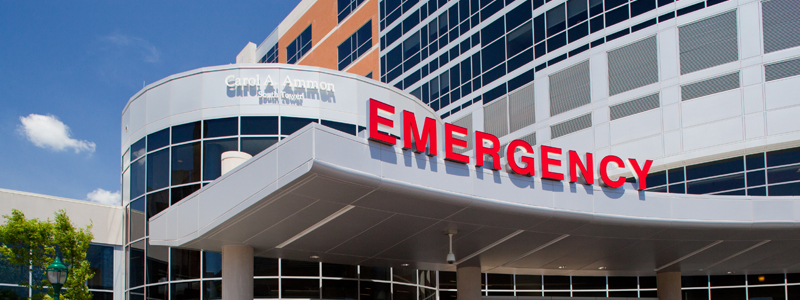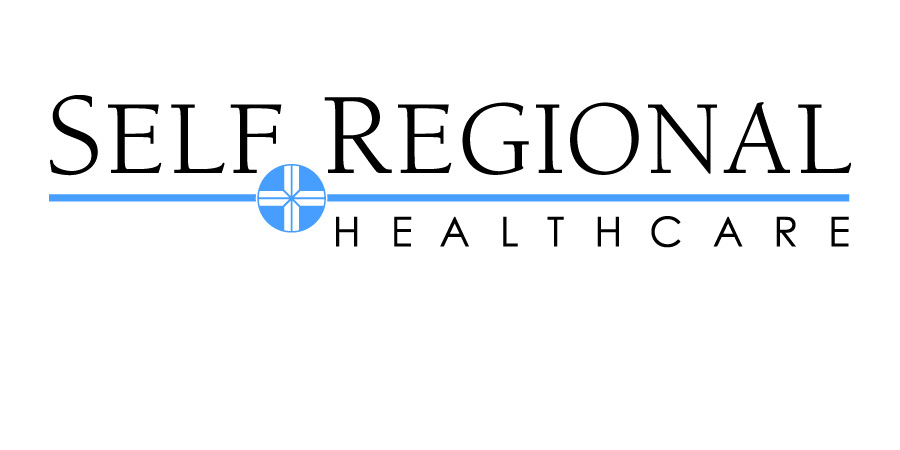Title Page
-
Conducted on
-
Prepared by
-
Location
CoP: Utilization Review
-
Do you want to review "Utilization Review" conditions?
482.30 Utilization Review
-
A-0652 482.30 The hospital must have in effect a utilization review (UR) plan that provides for review of services furnished by the institution and by members of the medical staff to patients entitled to benefits under the Medicare and Medicaid programs.
-
Interpretive Guidelines §482.30
If the hospital does not satisfy one of the exception criteria at §482.30(a), it must have a UR plan in effect which provides for review of services provided to Medicare and Medicaid beneficiaries. -
A-0653 482.30(a) The provisions of this section apply except in either of the following circumstances:<br>(1) A Utilization and Quality Control Quality Improvement Organization (QIO) has assumed binding review for the hospital.<br>(2) CMS has determined that the UR procedures established by the State under title XIX of the Act are superior to the procedures required in this section, and has required hospitals in that State to meet the UR plan requirements under 456.50 through 456.245 of this chapter.
-
Interpretive Guidelines §482.30(a)
The regulation permits two exceptions to the requirement for a hospital UR plan: (1) where the hospital has an agreement with a QIO under contract with the Secretary to assume binding review for the hospital or; (2) where CMS has determined that UR procedures established by the State under Medicaid are superior to the UR requirements for the Medicare program and has required hospitals in that State to meet the UR requirements for the Medicaid program at 42 CFR 456.50 through 456.245.
According to the regulation at 42 CFR 476.86(e), QIO review and monitoring activities fulfill the requirements for compliance activities of State Survey Agencies under §1861(k) of the Social Security Act (Act). The statutory requirements for utilization review at §1861(k) of the Act are reiterated in the UR CoP at 42 CFR 482.30. Therefore, a hospital meets the exception requirements of 42 CFR 482.30 if a QIO has assumed binding review for the hospital. (The hospital may not make requests for work to be performed by the QIO that goes beyond the scope of the QIO’s contract with the Secretary.)
The regulation at 42 CFR 489.20(e) requires a hospital to maintain an agreement with a QIO to review the admissions, quality, appropriateness, and diagnostic information related to inpatient services for Medicare patients, if there is a QIO with a contract with CMS in the area where the hospital is located.
CMS anticipates that most hospitals comply with the UR CoP by means of the QIO exception.
With regard to the second exception, CMS would have to determine that UR procedures established by a State under Medicaid are superior to the UR requirements for Medicare. Currently no UR plans established by a State under Medicaid have been approved as exceeding the requirements under Medicare and required for hospital compliance with the Medicare UR CoP within that State. In the event that CMS approves a State’s Medicaid UR process for compliance with the Medicare UR CoP, CMS will advise the affected State Survey Agency. -
A-0654 482.30(b) A UR committee consisting of two or more practitioners must carry out the UR function. At least two of the members of the committee must be doctors of medicine or osteopathy. The other members may be any of the other types of practitioners specified in 482.12(c)(1).<br>(1) Except as specified in paragraphs (b)(2) and (3) of this section, the UR committee must be one of the following:<br>(i) A staff committee of the institution;<br>(ii) A group outside the institution--<br>(A) Established by the local medical society and some or all of the hospitals in the locality; or<br>(B) Established in a manner approved by CMS.<br>(2) If, because of the small size of the institution, it is impracticable to have a properly functioning staff committee, the UR committee must be established as specified in paragraph (b)(1)(ii) of this section.<br>(3) The committee or group’s reviews may not be conducted by any individual who--<br>(i) Has a direct financial interest (for example, an ownership interest) in that hospital; or<br>(ii) Was professionally involved in the care of the patient whose case is being reviewed.
-
No information available.
-
A-0655 482.30(c)(1) The UR plan must provide for review for Medicare and Medicaid patients with respect to the medical necessity of:<br>(i) Admissions to the institution;<br>(ii) The duration of stays; and<br>(iii) Professional services furnished including drugs and biologicals.<br>(2) Review of admissions may be performed before, at, or after hospital admission.<br>(3) Except as specified in paragraph (e) of this section, reviews may be conducted on a sample basis.<br>(4) Hospitals that are paid for inpatient hospital services under the prospective payment system set forth in Part 412 of this chapter must conduct review of duration of stays and review of professional services as follows:<br>(i) For duration of stays, these hospitals need review only cases that they reasonably assume to be outlier cases based on extended length of stay, as described in 412.80(a)(1)(i) of this chapter; and<br>(ii) For professional services, these hospitals need review only cases that they reasonably assume to be outlier cases based on extraordinarily high costs, as described in 412.80(a)(1)(ii) of this chapter.
-
Interpretive Guidelines §482.30(c)
Admissions may be reviewed before, during, or after hospital admission as stated in the hospital’s UR plan.
Reviews may be conducted on a sample basis, except for reviews of extended stay cases.
In an Inpatient Prospective Payment System (IPPS) hospital, to determine outlier review compliance, “reasonably assumes” is a good faith test. The question to ask is whether the hospital is reviewing outlier cases. In instances where there was no other review of outlier cases, the question is whether it was reasonable for the hospital not to have known that the cases were in fact outliers. Some medical judgment might be required to determine whether it is reasonable for the hospital to have assumed that a patient fell into a DRG other than the one eventually assigned by the intermediary. This would be an issue in long stay outlier cases where the hospital did not review because the hospital erroneously assumed that the patient was in a DRG under which the case would not have
been an outlier. -
A-0656 482.30(d)(1) The determination that an admission or continued stay is not medically necessary<br>(i) May be made by one member of the UR committee if the practitioner or practitioners responsible for the care of the patient, as specified of 482.12(c), concur with the determination or fail to present their views when afforded the opportunity; and<br>(ii) Must be made by at least two members of the UR committee in all other cases.<br>(2) Before making a determination that an admission or continued stay is not medically necessary, the UR committee must consult the practitioner or practitioners responsible for the care of the patient, as specified in 482.12(c), and afford the practitioner or practitioners the opportunity to present their views.<br>(3) If the committee decides that admission to or continued stay in the hospital is not medically necessary, written notification must be given, no later than 2 days after the determination, to the hospital, the patient, and the practitioner or practitioners responsible for the care of the patient, as specified in 482.12(c);
-
Interpretive Guidelines §482.30(d)
When other than a doctor of medicine or osteopathy makes an initial finding that the written criteria for extended stay are not met, the case must be referred to the committee, or subgroup thereof which contains at least one physician. If the committee or subgroup agrees after reviewing the case that admissions, or extended stay is not medically necessary or appropriate, the attending physician is notified and allowed an opportunity to present his views and any additional information relating to the patient’s needs for admissions or extended stay. When a physician member of the committee performs the initial review instead of a non-physician reviewer, and he finds that admissions or extended stay is not necessary no referral to the committee or subgroup is necessary and he may notify the attending practitioner directly.
If the attending practitioner does not respond or does not contest the findings of the committee or subgroup or those of the physician who performed the initial review, then the findings are final.
If the attending physician contests the committee or subgroup findings, or if he presents additional information relating to the patient’s need for extended stay, at least one additional physician member of the committee must review the case. If the two physician members determine that the patient’s stay is not medically necessary or appropriate after considering all the evidence, their determination becomes final. Written notification of this decision must be sent to the attending physician, patient (or next of kin), facility administrator, and the single State agency (in the case of Medicaid) no later than 2 days after such final decision and in no event later than 3 working days after the end of the assigned extended stay period.
There are only 5 working days in a given week. Normally these days are Monday through Friday, however, the institution has the option to establish 5 other days as working days. When a holiday falls on a working day, that day is not counted as a working day.
In no case may a non-physician make a final determination that a patient’s stay is not medically necessary or appropriate.
If, after referral of a questioned case to the committee or subgroup thereof, the physician reviewer determines that an admission or extended stay is justified, the attending physician shall be so notified and an appropriate date for subsequent extended stay review will be selected and noted on the patient’s record.
Written notification of this final determination must be sent to the attending physician, the patient (or next of kin), the facility administrator and the single State agency (in the case of Medicaid) no later than 2 days after such final determination and in no event later than 3 working days after the end of the assigned extended stay period.
Where possible, the written notification should be received by all involved parties within the stated time period. Where appropriate and desired, verbal notification may precede written notification. -
A-0657 482.30(e)(1) In hospitals that are not paid under the prospective payment system, the UR committee must make a periodic review, as specified in the UR plan, or each current inpatient receiving hospital services during a continuous period of extended duration.<br>The scheduling of the periodic reviews may:<br>(i) Be the same for all cases; or<br>(ii) Differ for different classes of cases.<br>(2) In hospitals paid under the prospective payment system, the UR committee must review all cases reasonably assumed by the hospital to be outlier cases because the extended length of stay exceeds the threshold criteria for the diagnosis, as described in 412.80(a)(1)(i). The hospital is not required to review<br>an extended stay that does not exceed the outlier threshold for the diagnosis.<br>(3) The UR committee must make the periodic review no later than 7 days after the day required in the UR plan.
-
No information available.
-
A-0658 482.30(f) The committee must review professional services provided, to determine medical necessity and to promote the most efficient use of available health facilities and services.
-
Interpretive Guidelines §482.30(f)
“Professional” services means the services provided by practitioners, including both physicians and non-physician practitioners.
The review includes medical necessity and efficient use of available health facilities and services. Examples of topics a committee may review are:
• Availability and use of necessary services - underused, overuse, appropriate use
• Timeliness of scheduling of services - operating room, diagnostic
• Therapeutic procedures










